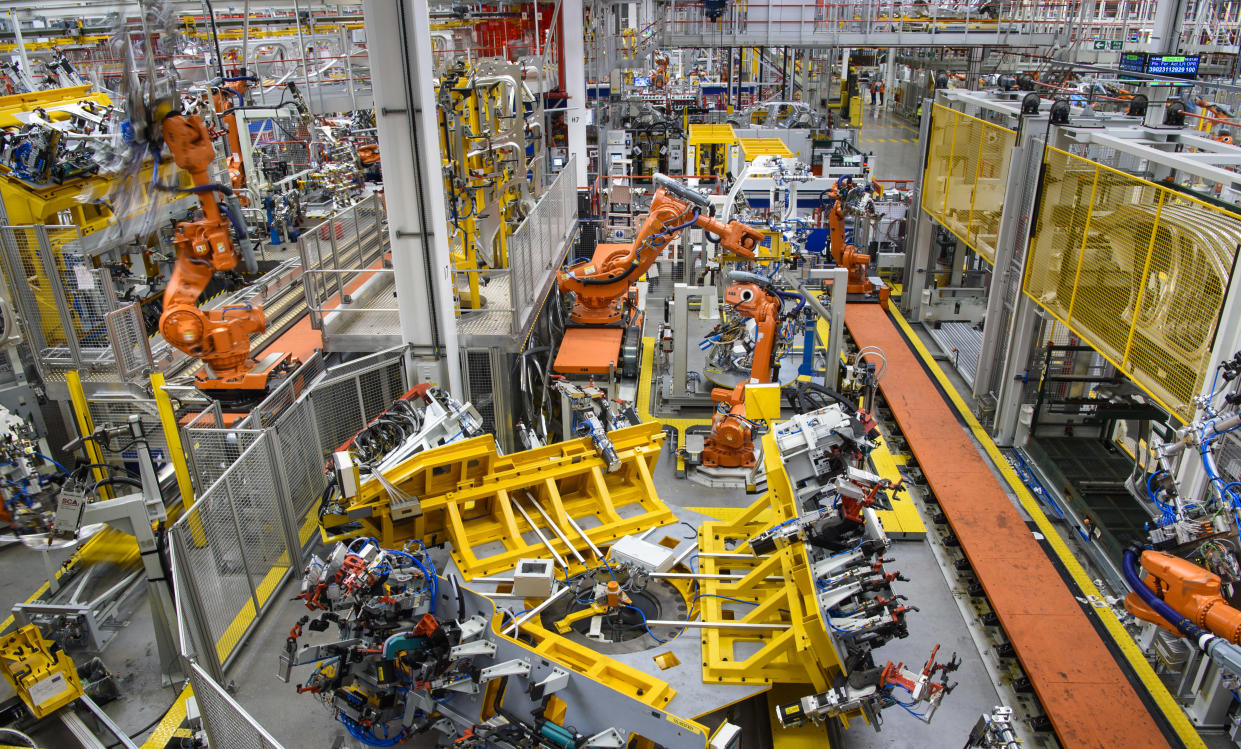UK factories recover but warn coronavirus hitting supplies of parts

The UK economy is “no longer flat on its back” as manufacturing recovers despite the coronavirus starting to hit supplies and exports, according to new figures.
A closely watched industry survey shows a bounce-back in UK manufacturing that surpassed analysts’ expectations, with client spending picking up.
But firms warned the coronavirus was starting to hit their supply chains and export sales, with “abrupt shortages” of Chinese parts and a “marked reduction” in new orders from Asia.
Suppliers’ delivery times dropped at their fastest rate since the survey began, with many Chinese factories shut down to help contain the outbreak.
The growth of the UK’s dominant services sector, including everything from banking to retail to cafes, also slowed slightly over the past month. Some firms reported a drop in tourism-related bookings and cancellations by clients in countries most affected by the virus.
The figures form part of a monthly survey of UK firms by IHS Markit and the Chartered Institute of Procurement and Supply (CIPS).
The headline figure on the purchasing managers’ index (PMI) is a widely watched guide to levels of activity in the UK economy, with figures above 50 showing growth and below 50 showing decline.
Read more: Retail sales bounce back in ‘Boris bounce’
The headline figure for manufacturing came in at 51.9 in February, up from 50 in January. The services figure came in at 53.3, down from 53.9 last month, suggesting continued growth but at a slower pace.
“Receding political uncertainty since the general election continued to translate into higher business activity and greater willingness to spend,” said the survey report released on Friday.
Tim Moore, associate director at IHS Markit, called the figures a “clear indication that the UK economy is no longer flat on its back.” It now predicts 0.2% growth in British GDP in the first three months of 2020.
Official figures on Thursday had shown retail, a key part of the services sector, bouncing back more than expected in January, with consumers opening their wallets.
Compared with December, sales volumes climbed by 0.9% in the first month of the year, better than the 0.7% analysts had forecast, according to the Office for National Statistics (ONS).
The strong growth, the best since March 2019, means the retail sector snapped the longest stretch of weakness since records began in the 1970s. The sector had experienced no growth in the final five months of 2019.
Analyst Marc-André Fongern, of Fongern Global Forex, said the signs of economic strength lowered the chances of an interest rate cut, weighed up more seriously than usual by Bank of England policymakers last month. “An interest rate cut is likely to be off the table for the time being,” he said.


